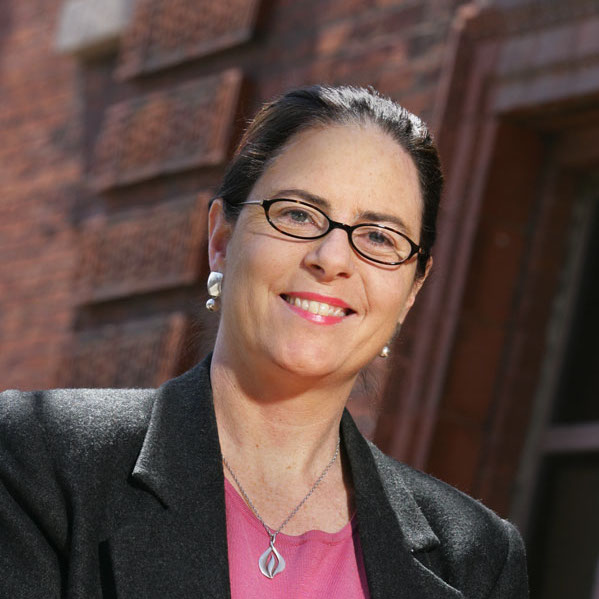Leir Institute Newsletter – Spring 2022

To our alumni and friends,
It has been another challenging six months for human security. The Russian invasion of Ukraine has displaced millions of people while contributing to escalating fuel and food prices around the world. Several countries in Africa are on the verge of famine. Meanwhile, the horrific shootings in Buffalo, NY and Uvalde, Texas – part of an epidemic of gun violence in the United States – remind us that threats to human security are not far from home. And, sadly, these incidents intersect with other unresolved problems such as corrupt governance, militarized borders, systemic racism, climate change, and a pandemic that is still with us.
Rather than despair, however, we must continue to search for creative solutions to these complex challenges. At Leir, we do so by revealing and then building on instances of human resilience and ingenuity in the face of these enormous obstacles. We have been busy working toward this goal in the last six months. As elaborated in this newsletter, Leir continued to host the following four projects:
- Building Resilience in Immigrant Communities (BRIC): a joint initiative with Tisch College and a local organization assisting African refugees and immigrants (ACEDONE) to co-create a program for women’s empowerment in the Boston area.
- Corruption, Justice and Legitimacy (CJL): a research-to-practice initiative committed to improving the effectiveness of anti-corruption programming in contexts of endemic corruption.
- Journeys Project: a cross-regional collection of migrant stories to better understand the costs and strategies involved in their journeys as well as the economic approaches they use when putting down roots in new surroundings.
- Program in Human Security and Inner Development (PHUSID): a skills-building initiative to better prepare students to work effectively and practice self-care in violent or fragile contexts.
We also welcomed two new projects to the Leir Institute:
- Digital Portfolios of the Poor (DPP): a multi-year, multi-country project aimed at creating better digital financial products for the poor by understanding how emerging technologies are viewed, used, understood, and perceived in low income settings, particularly among women.
- Refugees in Towns (RIT): a multi-sited initiative to understand the migrant/refugee experience by drawing on the knowledge and perspectives of refugees themselves as well as local hosts.
In addition, we organized a series of seminars, workshops, and conferences that explored diverse aspects of human security and provided funding to support human security-related research by Fletcher doctoral and master’s students.
Last but not least, we completed the strategic positioning process mentioned in our Fall newsletter. Drawing on extended conversations with Leir faculty and students, Fletcher alums, practitioners, and donors, we determined that Leir’s niche is at the intersection of human security and migration. People around the world are fleeing human insecurity in the form of war, economic collapse, non-state violence, and climate change. Meanwhile, displacement creates its own human security challenges by jeopardizing livelihoods and safety, particularly in the context of militarized responses by states. Not surprisingly, a growing number of Fletcher students are interested in exploring these intersections. And where better to do so than at the Leir Institute, which has deep expertise across these different but integrally connected issues.
Based on this determination, we are planning some exciting changes at the Leir Institute. We have crafted a new mission statement and will change our name to the Henry J. Leir Institute for Migration and Human Security. We have also articulated three main areas of work moving forward:
- Connecting and creating synergies between experts on migration and experts on drivers of displacement such as conflict, violence, social exclusion, governance failures, and climate change;
- Training current and future policymakers and practitioners to bring human security expertise and adaptive leadership skills to government, international organizations, humanitarian assistance, and civic advocacy; and,
- Partnering with local NGOs and government agencies to build local capacity and produce applied research that uses innovative methodologies informed by the human security approach.
Over the next several months, we will be launching our rebrand along with a redesigned website that will be easier to navigate and more visually appealing. To help with this endeavor, we have hired Jacob Ewing, a freshly minted Fletcher graduate, as the new Leir Project Manager. Jacob will be managing the Leir team, coordinating Leir events and outreach, and working closely with me to strengthen Leir’s institutional and financial foundation.
To celebrate our new direction, our Alumni Spotlight features two alums working at the intersection of migration and human security: Emily Butera (F04) and Will Clements (F20).
Stay tuned, and do not hesitate to reach out if you have ideas, concerns, or questions. As always, we welcome your ideas, feedback, and financial support as we continue with this important work.
Wishing you health and safety,
Katrina Burgess
Director, Henry J. Leir Institute
